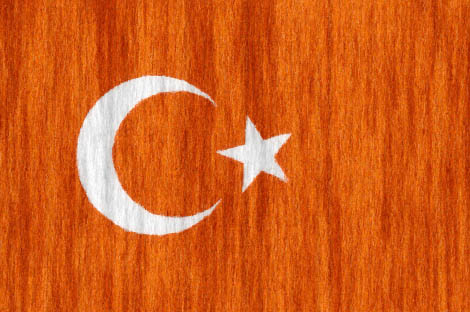Turkish President Abdullah Gul faced growing pressure yesterday from the country’s opposition and bar association to veto a bill tightening control of the Internet, a move that would set him at odds with long-time ally Prime Minister Tayyip Erdogan.
Erdogan has defended the new powers, which were passed by parliament last week and enable the authorities to block web pages within hours, as vital for defending privacy, dismissing criticism that they will undermine freedom of speech.
His critics say they are a reaction to a corruption scandal shaking his government, after alleged recordings of ministers and businessmen close to the prime minister flooded social media and video sharing sites.
The bill was sent to Gul yesterday and he now has two weeks to approve or veto it.
Police fired water cannon and teargas to disperse hundreds of people protesting in central Istanbul on Saturday against the new controls, scenes which recalled weeks of anti-government protests that shook Turkish cities last summer.
Under the bill, telecommunications authorities can block access to material within four hours without a prior court order, tightening restrictions imposed in a widely criticised law adopted by the EU candidate in 2007.
It will also allow the storage of individuals’ browsing histories for up to two years.
“The right to privacy cannot be a pretext for censorship. In short, Mr. Erdogan wants to turn the Internet into his Master’s Voice,” Faruk Logoglu, deputy leader of the main opposition CHP, wrote in an open letter to the UN, rights groups and media organisations.
He said the law was meant to silence criticism, deepen control over the media and cover up a government corruption scandal which erupted on Dec. 17 with the detention of businessmen close to Erdogan and three ministers’ sons.
The government says the internet reforms, sent to parliament before December 17 but broadened in recent weeks, are aimed at protecting individual privacy not gagging its critics.
“The shared expectation of broad sections of society is that President Gul will veto this law,” CHP deputy Aykan Erdemir told a news conference yesterday.
Selahattin Demirtas, leader of the pro-Kurdish BDP, made a similar call. “I know the president is not comfortable with this censorship law. He is a leader who actively uses social media,” he told reporters in the southeastern city of Diyarbakir, urging Gul to veto the legislation.
Bar Association chairman Metin Feyzioglu meanwhile wrote to Gul in an open letter saying “fundamental rights and freedoms” would be restricted if the measures came into effect.
Erdogan told crowds at an Istanbul construction project opening on Sunday that the previous night’s protests had been backed by the “parallel state”, a reference to the network of a US-based cleric with influence in police and judiciary whom he accuses of orchestrating the corruption scandal against him.
One pro-government newspaper, Star, went as far as to dismiss opposition to the bill as the work of a “porn lobby”, apparently taking its cue from Erdogan’s railing against a foreign-backed “interest rate lobby” he has repeatedly accused to seeking to push up borrowing costs and damage the economy.
Communications Minister Lutfu Elvan has said criticism of the new law, including from the European Union, was based on misinformation and that it aimed to enable authorities to block specific content rather than impose blanket website bans.
Gul is seen as more of a conciliatory voice than Erdogan but is a long-time ally and co-founder of the ruling AK Party. “Gul believes that Turkey has lost the ‘sheen’ of 3-4 years ago, that it has fewer friends and must get its act together quickly,” Murat Yetkin, a columnist for the liberal Radikal newspaperetkin wrote.
“While Gul is trying to avoid conflict with Erdogan in these conditions, new controversial laws are being placed in front of him ... The stance taken by Gul will be a determining factor for the near term future of Turkish political life.”
The European Union’s foreign policy chief Catherine Ashton and enlargement commissioner Stefan Fuele yesterday met Turkey’s foreign and EU affairs ministers in Brussels and discussed concerns about the internet law, among other matters, according to a statement from the European Commission.
But Erdogan has showed no signs of budging. “Some circles show this as if freedom of thought is being obstructed,” he said on Saturday. “There is no such thing. The Internet is not being done away with, the Internet is being brought under control.”
Meanwhile, a Turkish court yesterday dismissed charges against members of the main activist group behind last year’s nationwide anti-government protests.
The 26 members of the Taksim Solidarity Platform each faced up to 29 years in prison on charges including founding a crime syndicate, violating public order and organising illegal protests through social media.
The group includes prominent civil society figures and was the leading organisation behind last June’s protests that left six people dead.
But the court rejected the six-page indictment prepared by the Istanbul prosecutor’s office, saying it was unclear which laws the suspects had violated, Radikal newspaper reported.
“It should be explained how some of the suspects founded and controlled an organisation to commit which crimes, under which law, so as to permit them to defend themselves,” the court was quoted as saying.

